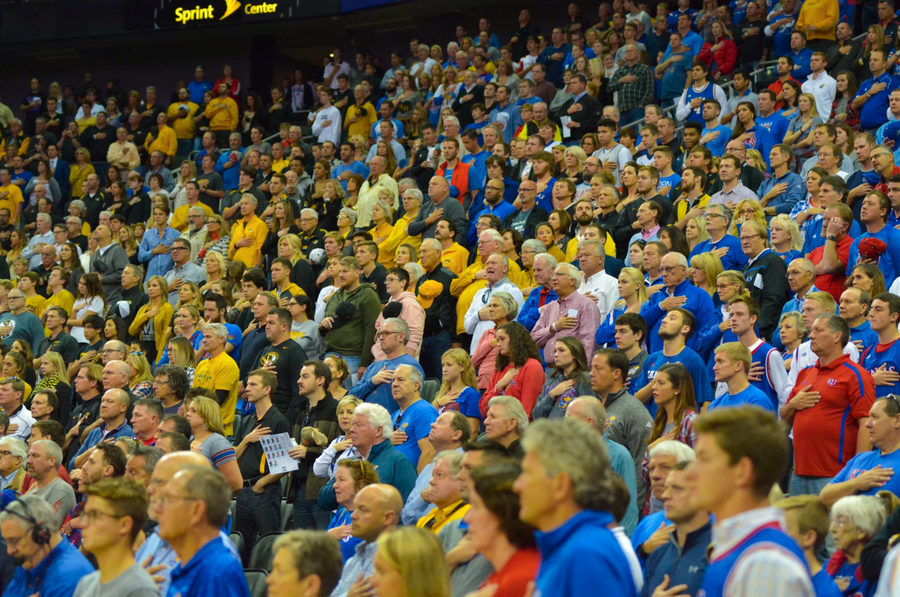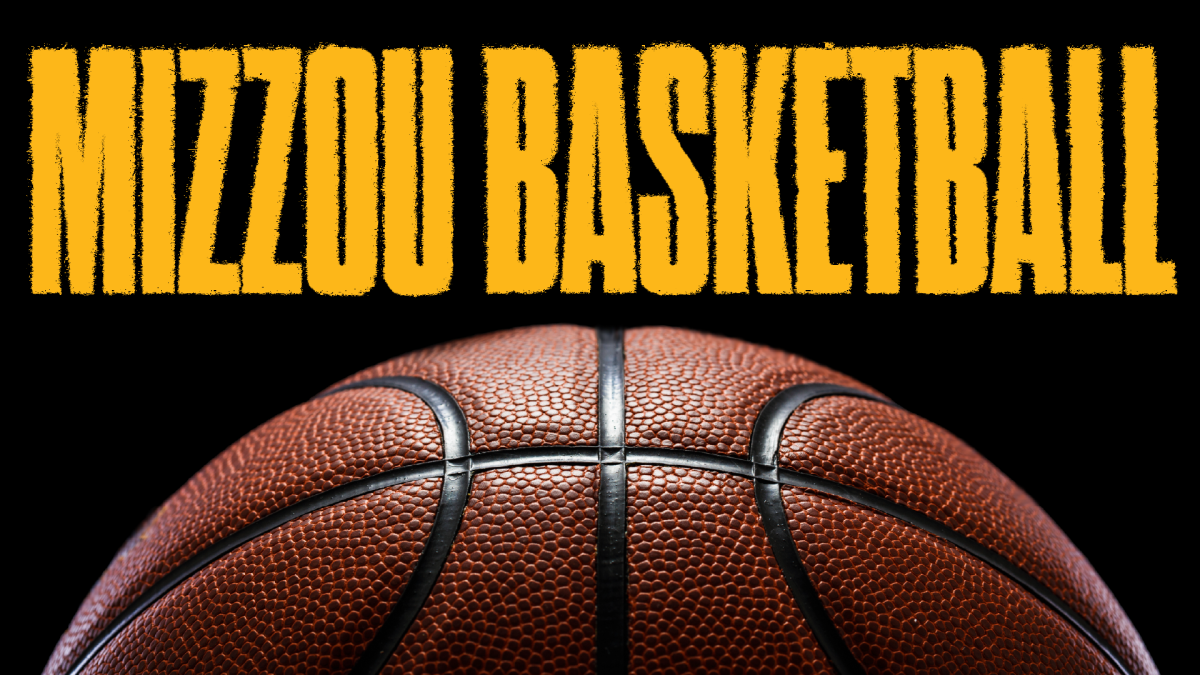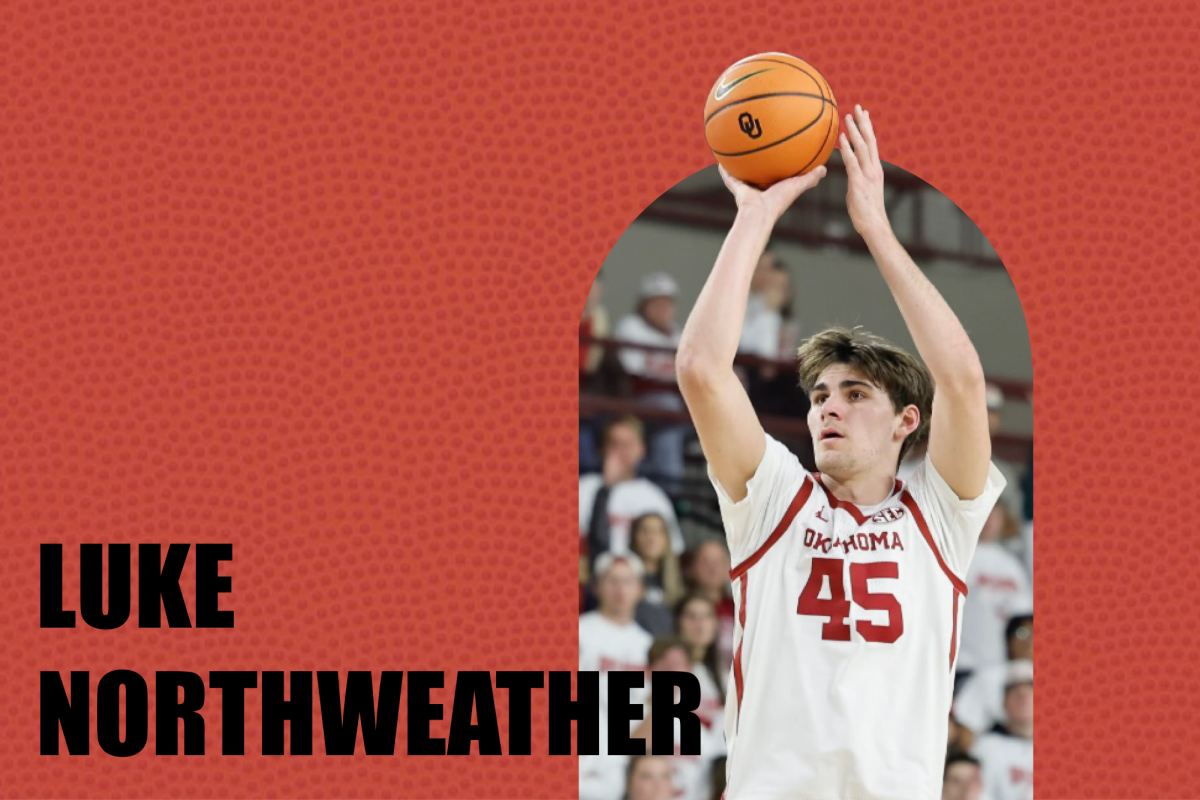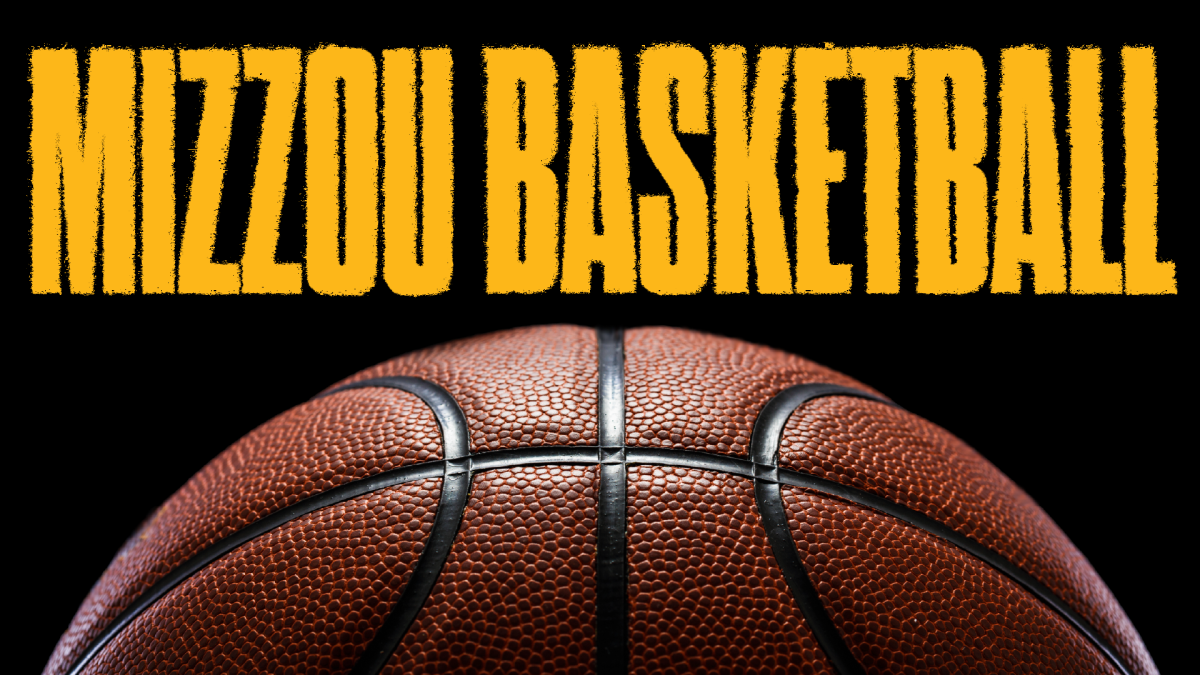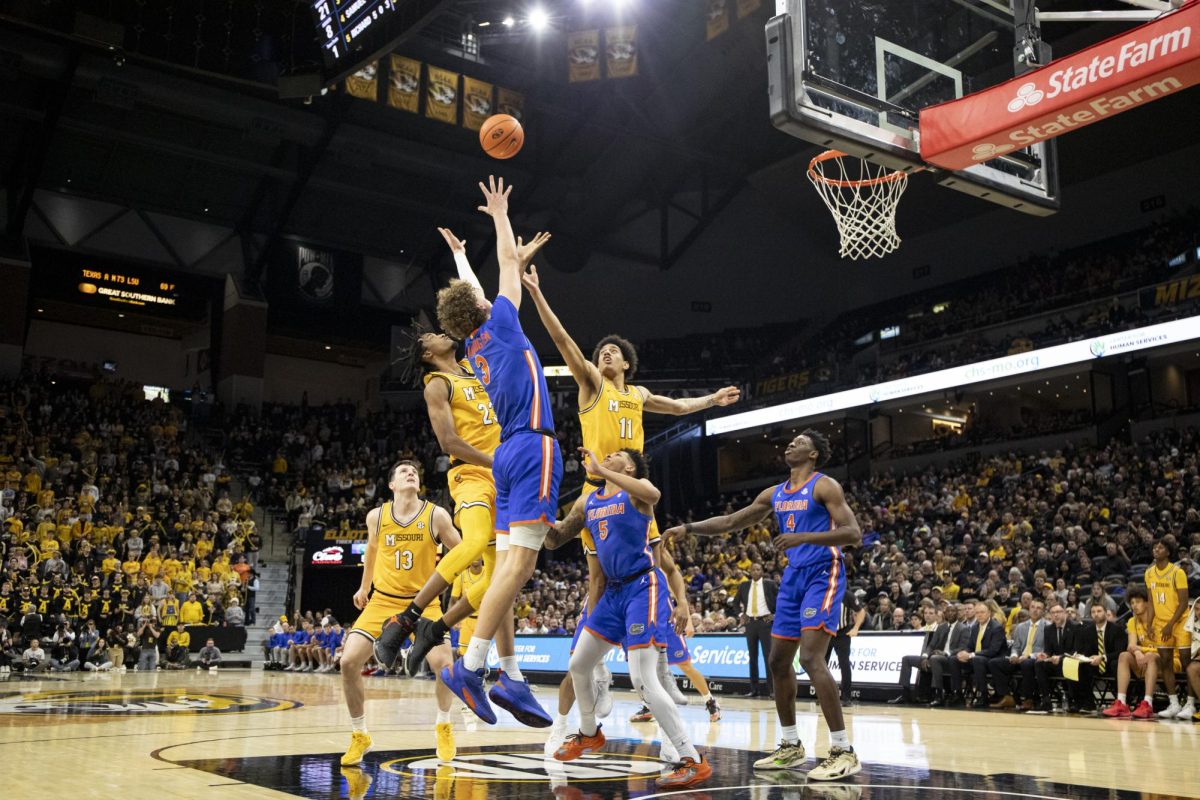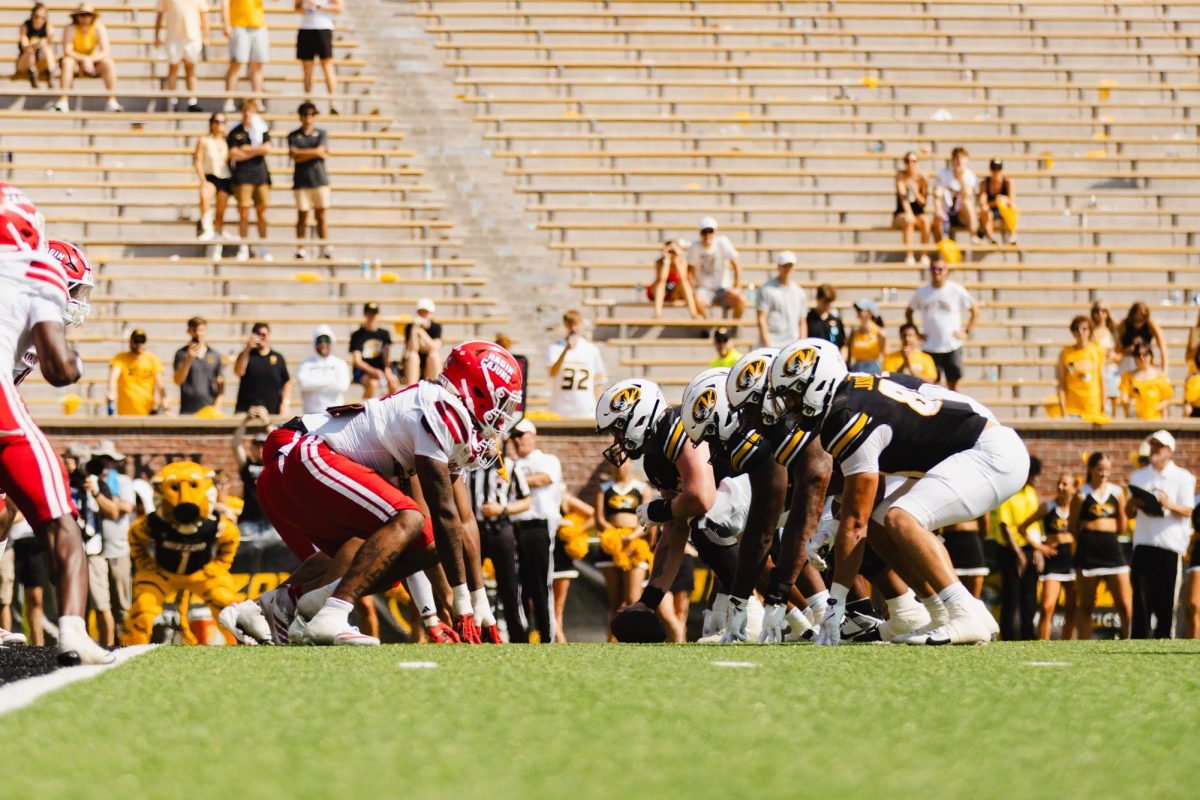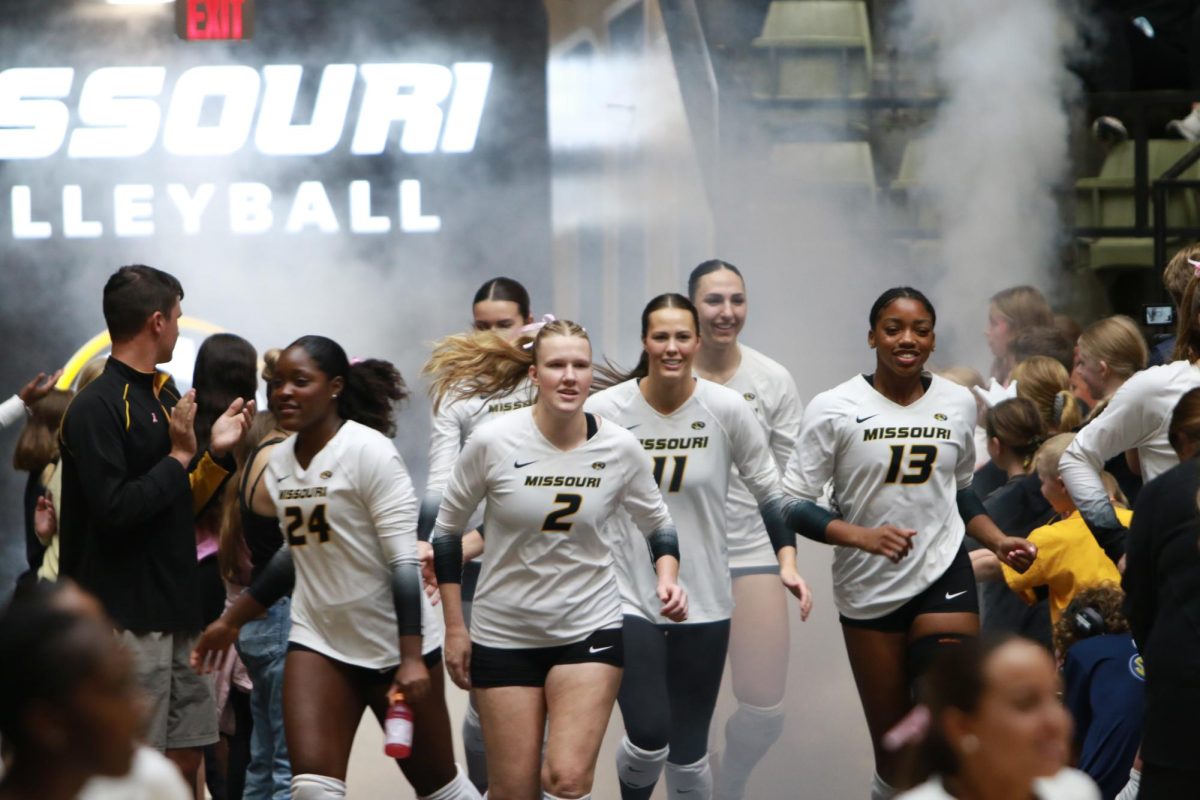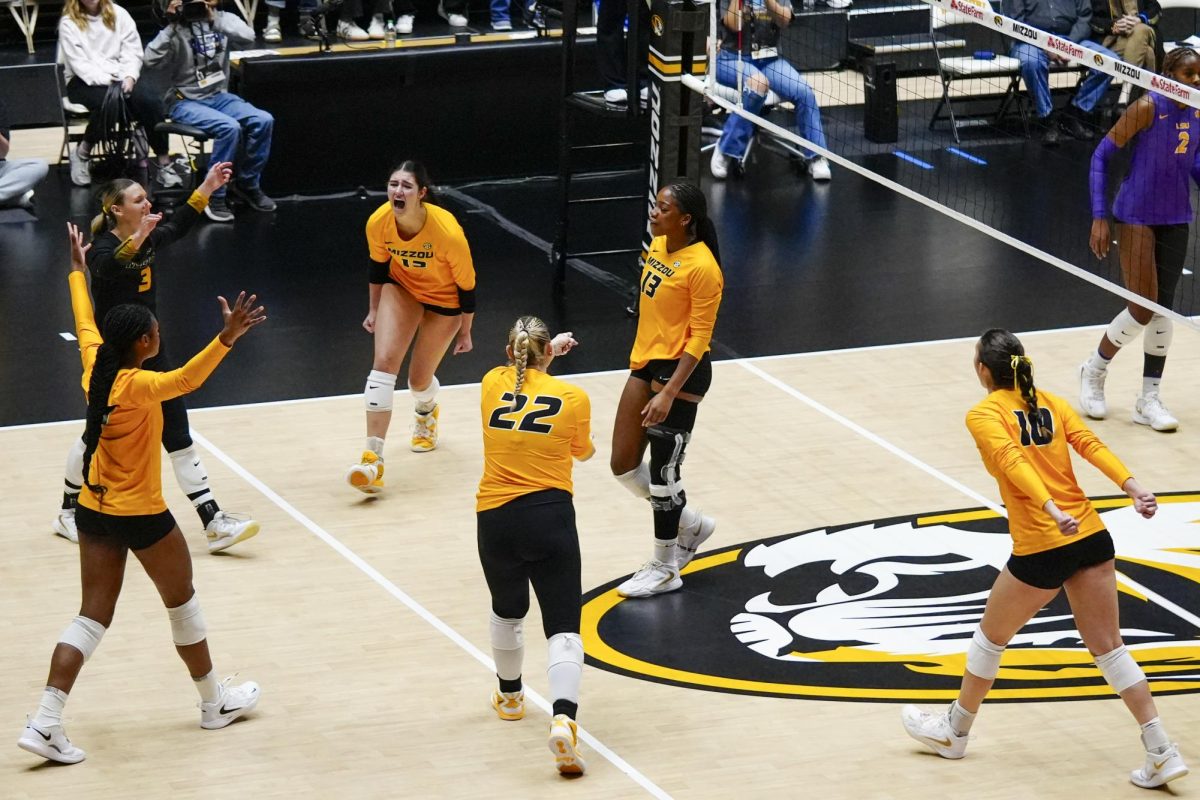In many ways, Sunday’s “Showdown for Relief” was everything it was cracked up to be.
Fans from Missouri and Kansas flooded Kansas City’s Power & Light District clad in black and gold and crimson and blue and brought passion with them into the Sprint Center. The Tigers and Jayhawks showed up ready to play, treating a preseason exhibition with the intensity of something larger. Once the ball tipped, the two teams combined for a thrilling, high-scoring affair.
The renewal of the previously dormant Border War fully lived up to its billing. It gave fans from both sides — and any fan of a traditional college basketball rivalry, for that matter — a taste of what one of college basketball’s greatest rivalries once provided on an annual basis. After the smashing success Sunday proved to be, both as a fundraising event and as a contest between once bitter rivals, it would be fair for fans from Missouri and Kansas alike to wonder when the matchup might become annual once again.
The answer to that question, which may come as a disappointment to the many who traveled up and down I-70 to catch the game Sunday, is that the Border War likely won’t return any time soon.
Just ask Kansas head coach Bill Self, who threw a wet towel over the suggestion that the two schools might meet again in the coming years.
“I’m not gonna ever say never, but I don’t think there’s been any change in our position as far as the university goes,” Self said. “I’m the spokesman I guess on this, but trust me I’m not the only one who feels that way. There was a very large contingent of KU people that wasn’t happy we were doing this initially until they realized it was for a good cause. What happens a few years from now is certainly not what we’re wanting to talk about now.”
Self made his stance clear on forging a deal to play Missouri annually.
“That’s what fans want to know, but we’re going to do what’s best for us,” Self said. “We’re not interested in doing what’s best for Missouri, or best for Missouri fans. But if it’s best for us to play them we will.”
On the other side of the Border War, Missouri’s first-year head coach Cuonzo Martin holds a different viewpoint. Martin joked Sunday that he hoped to make it out of his press conference without having to face the question, but said that he continues to be open to a deal to play the game each year. He also said he knows that no amount of enthusiasm and desire on one end is going to make it happen.
“Of course you want to play the game,” Martin said. “Both sides have to agree on something like that. But you saw the energy behind it.”
The differing viewpoints of the coaches from Missouri and Kansas on Sunday mirrored the dichotomy fans have seen from the two schools in the years since the Tigers left the Big 12 and the rivalry was put on the backburner.
The sentiment in Kansas remains that Missouri sold out the conference when it left in 2012 for the supposedly greener pastures of the Southeastern Conference. Even as time has passed, and desperation for the glory of Border Wars past has grown, KU saw no reason to reward Missouri for ditching the Big 12 up until Sunday.
The debate over the rivalry was brought to a head this past June after former Missouri Chancellor R. Bowen Loftin spoke scathingly of Kansas and blamed Self’s ego for keeping the two schools from returning to the rivalry in a [story by John Talty of AL.com](http://www.al.com/sports/index.ssf/2017/06/the_biggest_thing_texas_am_and.html). The report seemingly reinforced the death of the rivalry and only deepened each school’s stance on the Border War.
Missouri athletic director Jim Sterk reaffirmed in June that MU remained interested in renewing play between the two schools.
“I think they made it a point when we left the [Big 12] that they weren’t going to play anymore,” Sterk told the Kansas City Star. “But we’re certainly open to that and I know Cuonzo will work on that behind the scenes and see if that can happen.”
Kansas AD Sheahon Zenger responded with the stance that Self echoed on Sunday, saying that it was a decision that the university had made, and that the school would stand pat.
“Our stance is the same,” Zenger told the Lawrence Journal-World in June. “This is an institutional decision and has been from the very beginning.”
That was then, and this is now. Four months after Zenger declared that KU would stand pat, the Tigers and Jayhawks met on the floor of the Sprint Center, albeit in a charity exhibition, and the Border War was briefly renewed.
Now the two universities find themselves at another impasse. Will the two sides bury the hatchet and find a way to reach a deal, or will they remain in a stalemate? Sunday provided evidence that there is still substance to this rivalry, and that both the fan interest and economic potential are still there. The $1.75 million raised in ticket sales alone prove both.
Time will tell whether or not the two sides can reach any sort of agreement. It may require Missouri to make further strides as a basketball program before Self and the Jayhawks deem the Tigers a worthy annual opponent. It may also simply require the two sides to evaluate the economic potential Sunday’s game demonstrated.
Either way, what Sunday proved is that the door is not officially closed on the Border War. If the Tigers and Jayhawks could figure out a way to meet on the court for an exhibition on two weeks’ notice, a long-term agreement can almost certainly be found.
As he finished discussing the atmosphere and the intensity of Sunday’s exhibition, Martin left the possibility of Missouri and Kansas meeting on an annual basis on the table. At the very least, just the same as some of the 18,951 fans who filled the Sprint Center, Martin has hope that it could happen.
“I thought it was great across the board; we’ll see,” he said.
_Edited by Joe Noser | [email protected]_


